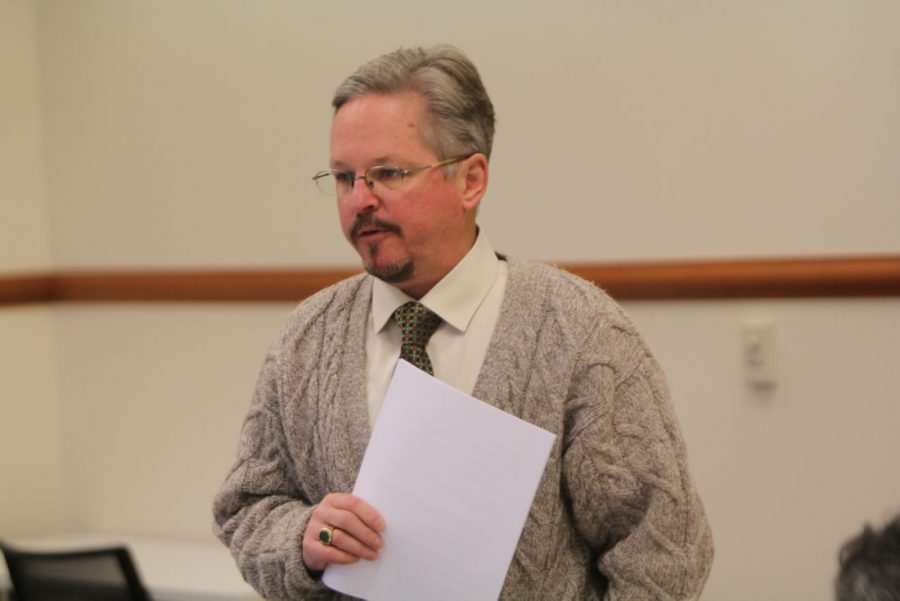Upper-level writing courses may be requirement for all
Ed Klonoski, acting associate vice provost speaks at an open forum for PLUS initiatives Tuesday. A proposal would require upper-level writing courses.
October 22, 2015
A proposal from the 2014 Progressive Learning in Undergraduate Studies (PLUS) Task Force could make upper-division writing courses a graduation requirement for all students.
PLUS was implemented this fall to decrease the amount of courses and narrow the focus for general education requirements, creating increased curricular flexibility, according to a presentation of the program. The requirement for upper-division writing courses was one of four initiatives — some of which have already been established — proposed by the task force.
“Virtually, a consensus across the entire campus community from students to employers to faculty, everybody believes that kids need to write more,” said Ed Klonoski, acting associate vice provost, during an open forum for PLUS initiatives on Tuesday.
The writing-course initiative, which will require a University Council vote in order to come into effect, would establish courses that can be taken in general education or as a part of degree programs. These courses would be capped at 35 students per section, count writing as at least 25 percent of a student’s grade and set an overall word count of 3,000 minimum, according to the proposal.
Some departments already have courses that meet the requirements and would only need certification, while others would have to establish their own with the help of the University Writing Center.
Pathways
As a part of PLUS, students may be able to choose from six themes, or pathways, while completing their general education requirements. These pathways focus on different disciplinary perspectives and can lead into major study areas.
The pathways await approval from the University Coordinating Council on Nov. 6. Both initiatives will be in place for the fall 2016 semester if they are approved.
Corrections: An earlier version of this article stated writing-infused courses will be voted on at a Nov. 4 University Council meeting. While the initiative will ultimately be voted on by the University Council, it will first need to go through the normal curricular process and may not be ready for a vote on Nov. 4.
An earlier version of this article stated the minimum word count for writing infused courses would be 30,000 if approved. The actual number is 3,000.














